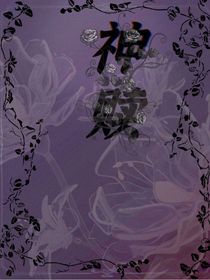直觉与潜意识(三) (5-4)
那么,是什么数学实体让我们能够赋予它们美丽和优雅的特性,哪些数学实体能够在我们身上发展一种审美情感?是那些被和谐地摆放的元素,这样头脑才可以毫不费力地拥抱它们的整体,同时掌握细节。这种和谐既满足了我们的审美需要,又帮助了我们思考,使我们能够跟上节奏并提供指导。同时,在审视这些有序的整体时,我们预见了一个数学定律……因此,正是这种特殊的审美敏感性发挥了我之前所说的精致的筛子的作用,这充分解释了为什么没有它的人永远无法成为一个真正的创造者。
Yet all the difficulties have not disappeared. The conscious self is narrowly limited, and as for the subliminal self we know not its limitations, and this is why we are not too reluctant in supposing that it has been able in a short time to make more different combinations than the whole life of a conscious being could encompass. Yet these limitations exist. Is it likely that it is able to form all the possible combinations, whose number would frighten the imagination? Nevertheless that would seem necessary, because if it produces only a small part of these combinations, and if it makes them at random, there would be small chance that the good, the one we should choose, would be found among them.
然而,所有的困难并没有消失。有意识的自我是狭隘且受限的。至于潜意识自我,我们不知道它的局限性,这就是为什么我们不太情愿做出之前的假设,因为它似乎可以在很短的时间内产生许多组合数量,比意识自我一生中所能产生的组合数量还要多。然而,潜意识的局限性问题仍然存在。它是否可能形成所有可能的,超乎你想象之多的组合?这似乎必需的,因为如果它只产生这些组合中的一小部分,如果它只是随机产生这些组合,那么在这些组合中找到我们需要的那个好的组合的概率就很小。
Perhaps we ought to seek the explanation in that preliminary period of conscious work which always precedes all fruitful unconscious labor. Permit me a rough comparison. Figure the future elements of our combinations as something like the hooked atoms of Epicurus. During the complete repose of the mind, these atoms are motionless, they are, so to speak, hooked to the wall...
数学联邦政治世界观提示您:看后求收藏(同人小说网http://tongren.me),接着再看更方便。
相关小说
- 卡斯的救赎
- 【真实故事改编一部分是,大部分幻想】【放荡不羁+好s神明&缺爱+坚强+正义感+轻微厌世+开朗凡人】“没有真正的救赎,那些只不过是神吃掉你的谎......
- 2.3万字1个月前
- 穿越之我家财万贯
- 一个大学生穿越到古代变成丞相府大小姐,嫡女,妹妹,庶女,开始选太子妃和长公主,我想成为长公主,因为我喜欢自由,还真的变成长公,妹妹便是太子妃......
- 0.3万字1个月前
- 谢谢你,喜欢我……
- 是后续!思念攒够了就见一面吧
- 1.0万字1个月前
- 小熠的痛苦220
- 洛小熠女化
- 0.6万字4周前
- 送糖男孩与冷漠魔王
- 送糖王子与冷漠魔王哈哈哈哈哈...如果你想知道是什么,进来自己看看。
- 5.6万字4周前
- 晨转三生,冰伴三世
- 〈黎书文社〉黎明即起,孜孜为善这本书有点水,准备重写
- 1.7万字4周前





